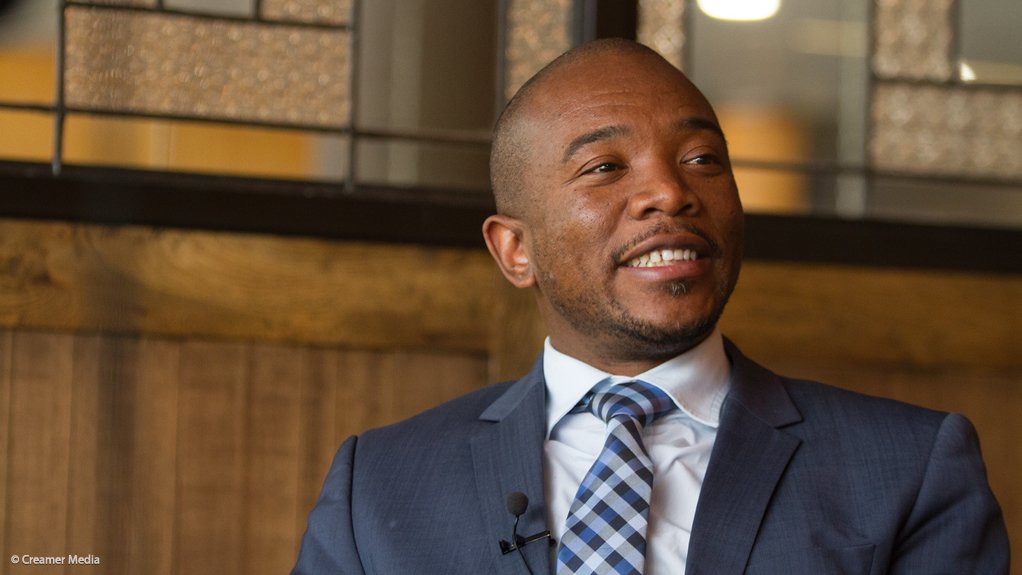Parliament’s Standing Committee on Appropriations has described South Africa’s exit from the Financial Action Task Force (FATF) grey list as a major milestone and a strong vote of confidence in the country’s ability to combat money laundering and other illicit financial crimes, with the Democratic Alliance (DA) calling for policy focus to improve debt ratings, reduce red tape and improve how government spends money.
Last week, the FATF announced that South Africa has exited the FATF grey list, formally called the list of “Jurisdictions under Increased Monitoring”.
This followed the conclusion of meetings of the FATF Plenary that took place in Paris, France, last week.
South Africa was placed on the grey list in February 2023 and was required to implement 22 action plans to strengthen its systems for fighting money laundering and terrorism financing.
The FATF announced that South Africa, Nigeria, and Mozambique had successfully addressed the shortcomings that led to their grey listing.
National Treasury explained that over the past 32 months, South Africa had engaged with a team of reviewers assigned by the FATF to assess progress against the Action Plan.
“This culminated in an on-site visit at the end of July 2025, when the assessors came to the country to confirm the sustainability of the reforms that had been reported to them. This concluded with a meeting with Deputy Minister of Finance Dr David Masondo, and Deputy Minister of Justice and Constitutional Development Andries Nel, who assured the FATF of the South African government’s political commitment to continue to sustainably improve the country’s Anti-Money Laundering and the Combating the Financing of Terrorism (AML/CFT) system,” it said.
Committee chairperson Dr Mmusi Maimane welcomed South Africa’s removal from the FATF grey list.
“...this milestone reflects the collective efforts of government, the private sector, and law enforcement agencies to strengthen our financial integrity systems,” he said.
He noted that South Africa’s removal from the grey list was expected to boost investor confidence and improve the country’s economic outlook, as some foreign investments had been restricted due to the grey listing.
“Now, we must build on this progress by ensuring continued compliance with FATF standards through tangible outcomes including effective investigations, prosecutions, and sanctions against money laundering,” stated Maimane.
He further congratulated Finance Minister Enoch Godongwana and the National Treasury team for their “leadership and professionalism” during the process, which resulted in a positive FATF assessment for South Africa.
DA spokesperson on Finance Dr Mark Burke commended the work, focus and commitment of government in getting South Africa off the grey list.
“Since entering government, we’ve helped work to secure this outcome. But there is no room for complacency.
“Now we must build momentum by ramping up successful prosecutions of financial crime. We want South Africa to be a hostile place for cartels, but a welcoming destination for reputable investors who bring jobs and growth,” he stated.
Burke pointed out that prior to being grey listed, the DA had warned the African National Congress government that failing to tighten controls, improve reporting and boost capacity to deal with financial crimes would have serious consequences.
“We take no pleasure that our warnings materialised. We only hope that by continuing to advocate for strengthening controls, South Africa avoids a costly relapse,” he said.
Meanwhile, the uMkhonto weSizwe Party (MKP) cautioned that the removal from the grey list did not automatically translate into greater investment or improved economic conditions for citizens.
MKP national spokesperson Nhlamulo Ndhlela said the South African economy remained “structurally unchanged, still plagued by unemployment, poverty and inequality”.
“…while this development may be presented as a positive step, it cannot be regarded as a panacea to the country’s ongoing struggle against financial crimes and corruption. Much more still needs to be done to confront what he termed the “deep-rooted” challenges that continue to enable illicit financial flows and criminal activities in the country,” he said.
Ndhlela said South Africa must intensify its efforts to expose and prevent the cover-up of money laundering activities, “including those linked to sitting President Cyril Ramaphosa's Phala Phala farm”.
“It is laughable that South Africa could be removed from the grey list when Ramaphosa himself was found in possession of undeclared foreign currency in his couch, while illicit financial flows continue to drain our national mineral resources for the benefit of the West and not for the beneficiation of our people and the South African economy,” he said.
The party expressed concerns with an “unabated increase in illicit tobacco and alcohol trading”, which it said undermined legitimate industries and deprived the State of critical revenue.
“…our porous ports of entry continue to serve as conduits for smuggling and illicit financial activities, costing South Africa billions in lost revenue and opportunities for job creation. Another cause for concern is the banks, who have become catalysts for money laundering, illicit financial flows and currency manipulation. As a nation, we must do far more to dismantle these networks to end the manipulation of the State by criminal syndicates and corrupt business interests,” Ndhlela said.
EMAIL THIS ARTICLE SAVE THIS ARTICLE ARTICLE ENQUIRY FEEDBACK
To subscribe email subscriptions@creamermedia.co.za or click here
To advertise email advertising@creamermedia.co.za or click here











